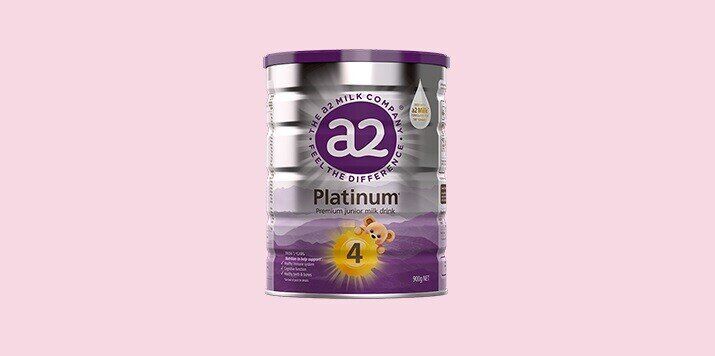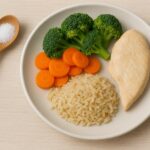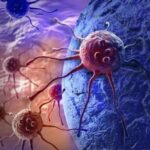While many believe that digestive issues are the primary cause of tummy aches in children, the reality is that it’s often a combination of factors, including the type of milk they consume, how they drink it, and their overall dietary habits.
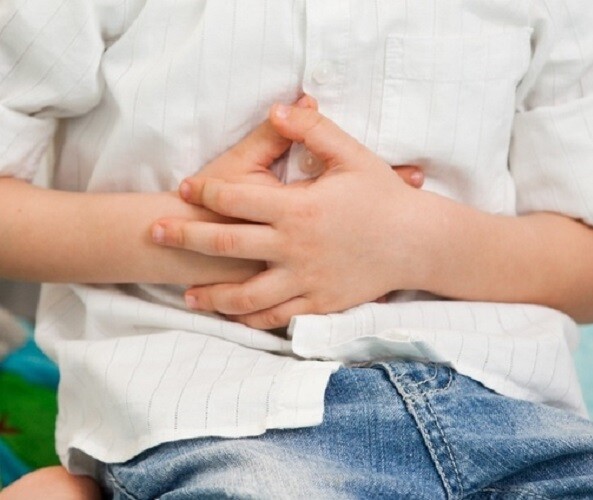
 Using milk with inappropriate protein types
Using milk with inappropriate protein types
As we know, a healthy digestive system plays a crucial role in absorbing essential nutrients for a child’s growth. It sets the foundation for optimal absorption of other critical nutrients like DHA, Calcium, Vitamins, and essential minerals. When the digestive system functions effectively, children feel lighter and can develop more comprehensively.
However, when children experience bloating after drinking milk, it could be due to lactose intolerance. Specifically, bloating after milk consumption might stem from drinking milk containing A1 protein instead of A2 protein, leading to digestive issues. This condition causes discomfort and hinders nutrient absorption.

Using milk with suitable protein types helps children absorb nutrients better.
One solution to ease the digestive burden on children is to choose milk with friendly protein types, such as A2 protein found in a2® Platinum® products. A2 protein is a natural milk protein considered more easily digestible than A1 protein, which is prevalent in many milk products today. Consuming milk with A2 protein can facilitate complete nutrient absorption, supporting a child’s overall development.
Research shows that children who drink milk with A2 protein tend to experience fewer digestive issues, such as bloating or stomach aches. As a result, they feel more comfortable, allowing for better absorption of essential nutrients, which supports their physical and cognitive development.

Impact of dietary habits
In addition to choosing the wrong protein type in milk, daily dietary habits also significantly contribute to children’s bloating after drinking milk.
Some children may struggle to digest milk due to an unbalanced diet lacking fiber and other essential foods. Overconsuming processed foods, sweets, or fast food can lead to bloating and gas.
Therefore, parents should encourage children to eat a varied diet, including green vegetables, fruits, whole grains, and protein from meat, fish, and legumes.
These foods provide essential nutrients and support a more efficient digestive system. Especially, fiber-rich foods improve digestion and reduce bloating symptoms.

Daily dietary habits have a significant impact on children’s bloating after drinking milk.

Incorrect milk drinking habits
Moreover, milk drinking habits are also essential. Many children tend to drink milk too quickly or while playing, leading to air swallowing and causing bloating. Therefore, parents should guide children to drink milk slowly and create a calm environment for them to enjoy their milk comfortably.
The timing of milk consumption is another critical factor. Children should not drink milk when their stomachs are already full or right after a meal, as this can put pressure on their digestive system. The ideal time to drink milk is about 30 minutes after a main meal, when the stomach has partially digested the food and is ready to receive additional nutrients from the milk.
To pinpoint the exact cause of bloating, parents should observe their children’s reactions after drinking milk. If the symptom persists, keeping a record of the types of milk, drinking times, and habits will help identify the factors causing the issue. Accordingly, adjustments can be made to their diet and milk choices.
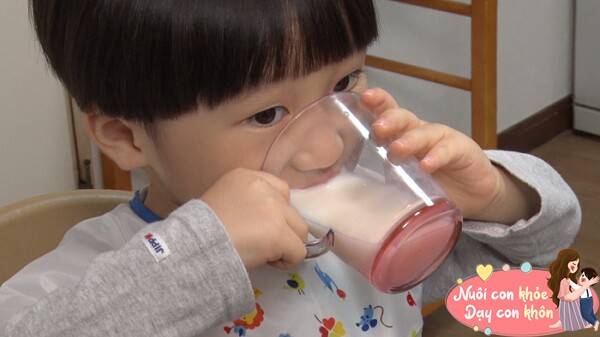
Children should not drink milk when their stomachs are full or right after a meal.
If bloating persists or is accompanied by other symptoms such as stomach pain, diarrhea, or vomiting, parents should take their children to see a doctor to rule out any serious digestive issues.
Bloating after drinking milk in children is not solely a digestive issue but a multifaceted problem. Choosing the right protein type in milk, maintaining healthy dietary habits, and guiding children to drink milk correctly are essential steps to alleviate this condition.
A healthy digestive system ensures children’s comfort and optimal absorption of critical nutrients like DHA, Calcium, Vitamins, and minerals. With proper care and attention, children will have the opportunity to develop comprehensively and grow up healthier.
|
a2® Platinum®, imported 100% from New Zealand, is made from pure a2 Milk® and offers a delicious, natural milk flavor – an excellent choice for your child’s development. With its unique formula containing 100% valuable A2 protein, a2® Platinum® helps alleviate digestive concerns and supports easier nutrient absorption. Additionally, with over 15 types of vitamins and minerals, including Zinc, Calcium, Fiber, and DHA, a2® Platinum® boosts immune function and supports cognitive function, recognition, and vision, promoting holistic growth and development. a2® Platinum® nutritional products are exclusively imported and distributed in Vietnam by Cong Ty Co Phan Tiep Thi va Phan Phoi Song Lahn.
|
The Best Time to Drink Milk: Morning or Night? Uncover the Surprising Truth and Maximize Nutrition.
Introducing our resident health and wellness guru – your trusted guide to all things nutrition and wellbeing. Delve into the fascinating world of dairy as we explore the myriad benefits of milk and its positive impact on your health. Learn from the experts as they reveal their top tips for incorporating milk into your daily routine in the most beneficial ways. It’s time to unlock the secrets to a healthier, happier you!
























